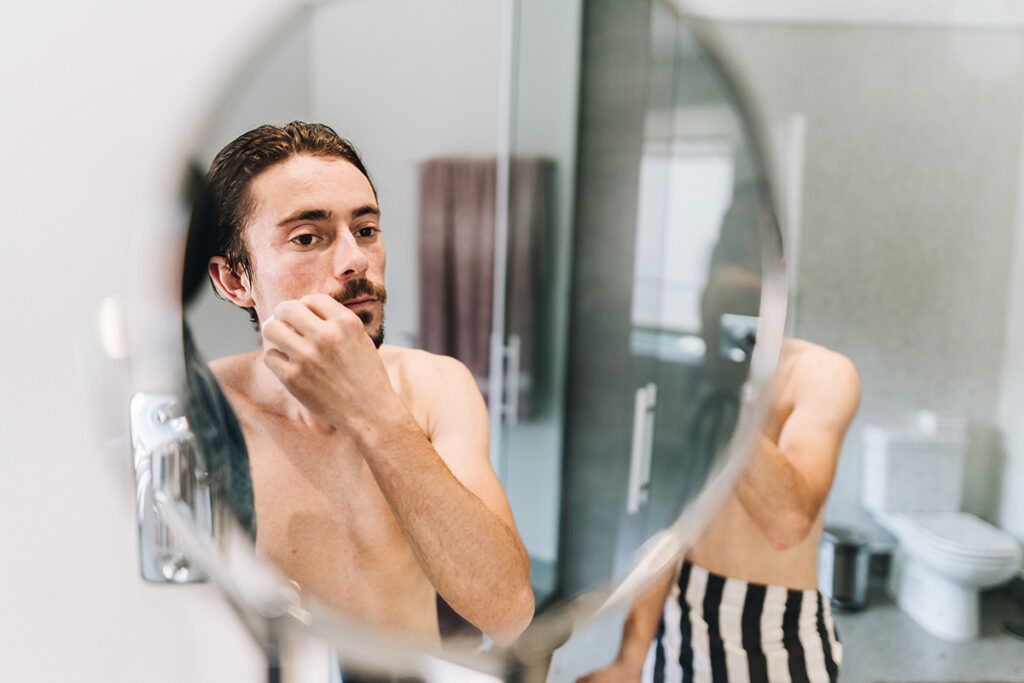Herpes simplex 1 (HSV-1) is a type of herpes that, in most people, shows no symptoms.
But in some individuals, the virus can cause painful ulcers and blisters, known as cold sores. You’re able to pass on the viral infection regardless of whether you’re experiencing cold sores or not.
You can catch HSV-1 very easily as the virus spreads from one person to another.
Typically, you can catch it during childhood as it can pass between people through saliva. If someone with a cold sore kisses you, you’ll likely catch HSV-1.
Once you catch HSV-1, it remains in your body for life. This means that after the sore clears, the virus remains in your body.
Still, you may never experience a cold sore again despite no vaccination or chance of immunity to the virus.
Can you be immune?

The virus that causes cold sores is very common, affecting around 3.7 billion people under the age of 50 worldwide.
Like all viruses, it’s constantly changing its genetic structure, making it very difficult for your body’s immune system to create an effective immune response.
This is why once you catch HSV-1, it will always stay in your body regardless of whether you’re currently experiencing a cold sore or not.
After a cold sore clears up, the virus will travel to your nerve cells. Here, it rests until something triggers it to reactivate and cause another cold sore.
Some people will never experience a cold sore, as their immune system develops antibodies to keep them at bay.
These rest periods are possible due to the activity of your immune system to keep cold sores at bay, but it’s not able to completely clear the infection. This is because the virus can hide away within your nerve cells, or sensory ganglia.
Researchers are currently trying to develop vaccinations to prevent infections of HSV-1.
But current research suggests this isn’t likely to happen soon. A therapeutic vaccine to help reduce the chance of experiencing symptoms is more realistic.
Need a prescription or refill? You can get discreet and expert on-demand care in as little as 15 minutes with no video or appointment required. For $25, answer a few questions online and get a treatment plan from a board certified healthcare professional. Get started here.
Susceptibility to cold sores
Cold sores come and go, with up to 10% of people with cold sores experiencing them more than five times per year.
While most of the time your immune system will prevent cold sores from developing, certain triggers can allow the virus to develop cold sores.
According to the American Academy of Dermatology Association, these are typically triggers that result in your immune system weakening, such as:
- catching a common cold
- emotional distress
- tiredness
- dental work
- experiencing your menstrual cycle
- physical strain
- developing a fever
- sunburn, or other minor injury to your lips
Cold sore triggers are different for everyone. What triggers you to develop a cold sore, may not in others.
And after you reach the age of 35 years, you’re less likely to experience cold sores.
Speaking with a doctor
For most people, cold sores aren’t serious and cause nothing more than a bit of discomfort for 2 weeks or less.
But, in some circumstances, you may need to speak with a healthcare professional to receive treatment and medical care.
You may need to speak with a dermatologist if you:
- develop a cold sore near your eye
- develop several cold sores
- experience cold sores six or more times per year
- have an existing health condition that affects your immune system, such as HIV
- take medication that weakens your immunity, such as certain steroid medications
- recently underwent transplant surgery or chemotherapy
- have atopic dermatitis or eczema
Experiencing several cold sores at the same time can be painful, and even prevent you from drinking water. In a situation like this, your health may be at risk so it’s very important to get medical help.
Treatments
If you experience cold sores that last longer than 2 weeks, a healthcare professional may recommend antiviral medication.
These can be either topical or oral tablets that you apply or take within the first few days of a cold sore outbreak.
They include:
- oral acyclovir (Zovirax)
- valacyclovir (Valtrex)
- famciclovir (Famvir)
- acyclovir cream (Zovirax)
If you need help covering the cost of medications, the free Optum Perks Discount Card could help you save up to 80% on prescription drugs. Follow the links on drug names for savings on that medication, or search for a specific drug here.
